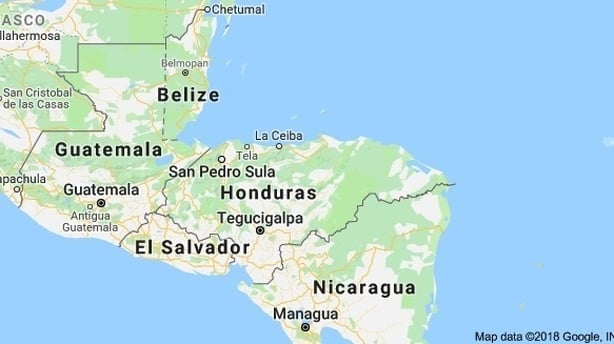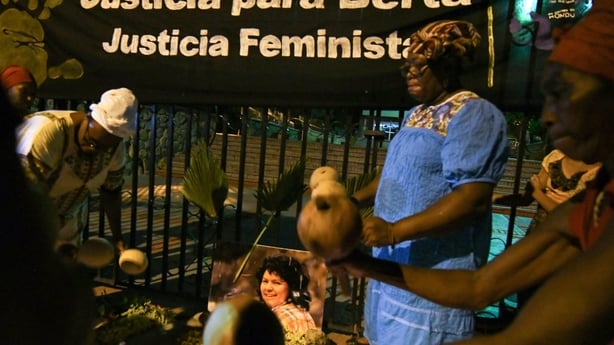Honduras is the deadliest country in the world for environmental activists. Since 2010, more than 120 activists have been murdered in the country for defending the environment and local communities from exploitation.
Martín Fernández Guzman (42) puts his life at risk every day.
Honduras is the deadliest country in the world for environmental activists. Since 2010, more than 120 activists have been murdered in the country for defending the environment and local communities from exploitation.

The victims are ordinary people who have stood up against big businesses and landowners. They are gunned down by hired assassins and private security firms.
A report from Global Witness last year stated: "murders of activists...are part of an epidemic sweeping the country, which has its roots in corporate greed, corruption, and impunity for business-backed aggressors. They constitute a systematic campaign to terrorise local communities into accepting the theft and industrialisation of their land."
In 2009, Martín, a lawyer by profession, co-founded a social movement, Movimiento Amplio por la Dignidad y la Justicia (MADJ), to defend human rights, the indigenous people and the country’s natural assets.
It was a decision that changed his life forever.
"We live in constant fear of attack," he says. "I, and many colleagues, have had to live in exile."
In 2012 he was forced to flee to Brazil for three months after he received telephone death threats and was followed by cars with black tinted windows near his work and home.
Since MADJ founded a radio station in 2014, he has also received several calls while on air, threatening to blow up the radio booth. In 2017, he was violently attacked by a group of people. His nose was broken, but he knows it could have been a lot worse.
He worries about his family and personal security, and after further attacks and intimidation, he was forced to flee again in January 2018.

Martín agrees that the attacks on human rights defenders could be a sign of their work’s success.
"It is definitely possible," he says. "But it’s important to point out the failure of the government to really punish those who break the law because the deaths of many defenders could be avoided if they did so.
"In most cases, it involves companies that have a very high economic interest in the country and have links with politicians. They want to monopolize the country's assets and this places each of the defenders in a highly vulnerable situation."
But Martín will not be deterred.
"It is our role to make a new future for Honduras," he said.
For the last nine years he has been working with the Tolupan community, an indigenous group who have faced much violence as they attempt to stop the exploitation of their natural resources. Over 100 members of the community have been murdered over the last 20 years.
"These people were defending a territory," Martín says. "And they were killed for doing so. The loss of human life just because of a business interest is incomprehensible.
"This motivates you to seek justice, despite the great risk involved, because their communities have been neglected, and these remarkable, brave people have died to defend their land and their rights."
With the support of MaDJ, they are working to rebuild their community and are taking legal cases to claim their land back. They are standing up to companies that try to exploit their natural resources and have successfully been able to stop the development of a commercial hydroelectric plant and the further loss of their forests for logging and mining.
"In the past, companies had been granted illegal licences to exploit the wood of the Tolupan people," he says. "But with our support, the population has been able to resist the exploitation and take back control of their territory which is a very important achievement."
Honduras may still have a long way to go to overcome the problems of resource exploitation and corruption but with people like Martín at the helm, they will continue to stand up for what is right.
"We are going through difficult times but the population mobilised and ready to stand up to oppression. So while there have been sad times and difficult situations, we are living during an era of great importance."
Emmet Sheerin is Trócaire’s Campaigns Officer.
The views expressed here are those of the author and do not represent or reflect the views of RTÉ.




